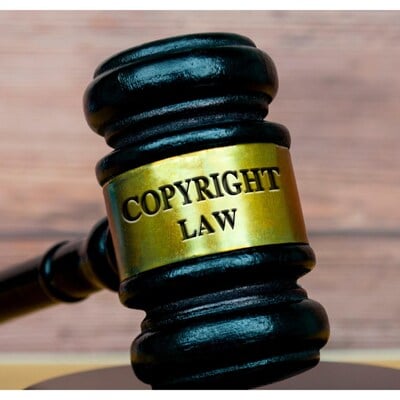For copyright holders, the decision is a victory that strengthens the protection of their rights. Image: Shutterstock
The DPIIT’s withdrawal of the September 2016 office memorandum on extending the scope of a copyright rule to webcasts would strengthen the position of copyright owners and help them negotiate better royalty rates, experts say.
Last week, the Department for Promotion of Industry and Internal Trade (DPIIT) withdrew an office memorandum on extending the scope of Section 31D to webcasts.
In 2016, through an office memorandum, the government decided to include internet broadcasting within the scope of the Copyright Act.
The DPIIT has said that in light of the Bombay High Court’s decision in the matter of Tips Industries Ltd vs Wynk Music Ltd, the office memorandum issued by the department on September 5, 2016, “is hereby rescinded”.
This section discusses legal licenses for the dissemination of literary and musical works and sound recordings.
Abhay JV, partner at Shardul Amarchand Mangaldas & Co, said the withdrawal of the office memo will be welcomed by copyright owners (record labels etc.) as it will strengthen their position in negotiations with organisations keen to stream works on the internet.
“The main advantage for copyright owners will be that they will now be able to negotiate royalty rates, without having to worry about those rates being decided by the commercial court,” he said.
However, he added that the DPIIT’s action also underlines the need for India to have a balanced framework under which both copyright owners and organisations eager to use copyrighted works on the Internet can benefit.
“This is especially necessary considering that India has a large internet subscriber base and an OTT market and generates substantial revenues. The need to amend the existing laws to keep pace with technological developments and address the complex issues arising out of them is also imminent,” Abhay said.
Explaining the rule, he said Section 31D (inserted after the 2012 amendment) of the Copyright Act, 1957, provides that any broadcasting organisation which wishes to communicate a work to the public by broadcast or performance may acquire a statutory licence to do so by giving prior notice and paying royalty to the copyright owner at the rate fixed by the commercial court.
In other words, it created a legal licensing regime whereby a broadcaster could communicate its work after paying royalties to the copyright owner, he said.
“However, the right to transmit online works through internet streaming is not covered by Section 31D. Internet streaming may include online music streaming services or other related streaming services and OTT platforms,” Abhay said.
This absence of Internet transmission benefited copyright owners as they were able to exploit the ever-expanding online market through individual licensing agreements and without relying on legal licenses issued by the relevant authority.
On 5 September 2016, the DPIIT found it appropriate to issue an office memorandum stating that Section 31D, which refers to “any broadcasting organisation wishing to communicate with the public”, cannot be construed restrictively to cover radio and television broadcasting, but appears to include internet broadcasting as well.
“Even though the industry, especially the music industry, raised concerns, the memorandum was not quashed. The notification was quashed by the DPIIT on August 21, 2024, due to the decision of the trial court of the Bombay High Court to dispose of the appeal in Wynk Music Ltd. v. TIPS Industries Ltd. on the basis of an agreement between the parties,” it said.
Global Trade Research Initiative (GTRI) founder Ajay Srivastava said the revocation of the order marks a significant legal development in India’s digital content and copyright landscape.
“This underlines the role of the judiciary in interpreting legal provisions and the importance of ensuring that digital platforms comply with the correct licensing frameworks,” he said.
Srivastava added that the decision is expected to have a lasting impact on the digital music industry, influencing how music is licensed and distributed online while encouraging fair compensation for artists and rights holders.
“For copyright holders, the decision is a victory that strengthens the protection of their rights in the digital age. It highlights the importance of obtaining appropriate licenses before distributing copyrighted content online, which could lead to stricter enforcement practices within the industry,” he said.
On the other hand, digital music platforms have expressed concerns about the potential increase in licensing costs and the challenges of renegotiating agreements, he said, adding that the decision may also influence the availability of certain music on these platforms, as the cost of obtaining licenses could affect their business models.
(Only the headline and image of this report may have been reworked by Business Standard staff; the rest of the content is auto-generated from a syndicated feed.)
First published: August 26, 2024 | 12:06 pm IS
Disclaimer:
The information contained in this post is for general information purposes only. We make no representations or warranties of any kind, express or implied, about the completeness, accuracy, reliability, suitability or availability with respect to the website or the information, products, services, or related graphics contained on the post for any purpose.
We respect the intellectual property rights of content creators. If you are the owner of any material featured on our website and have concerns about its use, please contact us. We are committed to addressing any copyright issues promptly and will remove any material within 2 days of receiving a request from the rightful owner.

